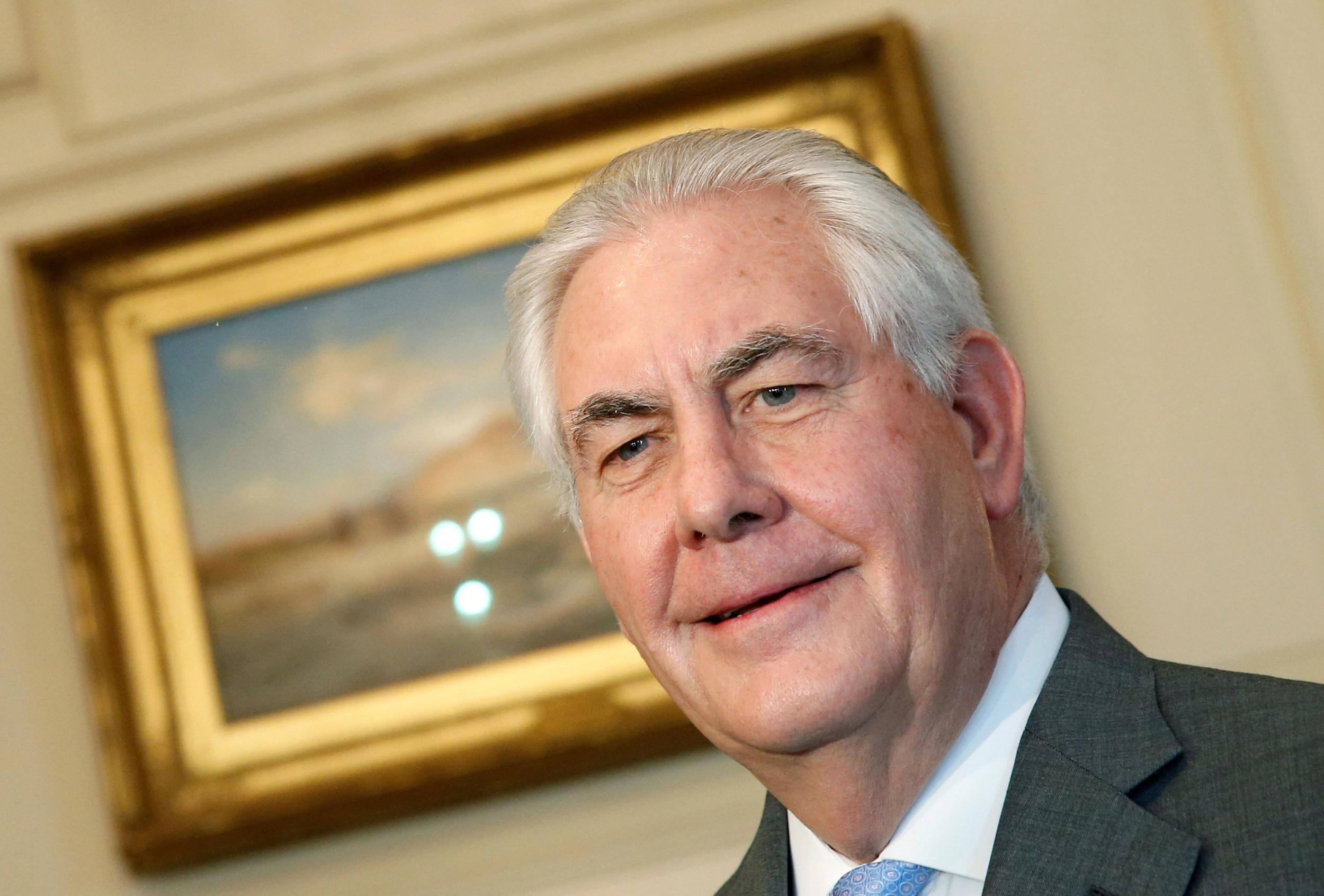Former oil chief Rex Tillerson says he will play no part in awarding contract for controversial Keystone XL pipeline
US Secretary of State served as chairman and chief executive officer of the energy giant ExxonMobil

Your support helps us to tell the story
From reproductive rights to climate change to Big Tech, The Independent is on the ground when the story is developing. Whether it's investigating the financials of Elon Musk's pro-Trump PAC or producing our latest documentary, 'The A Word', which shines a light on the American women fighting for reproductive rights, we know how important it is to parse out the facts from the messaging.
At such a critical moment in US history, we need reporters on the ground. Your donation allows us to keep sending journalists to speak to both sides of the story.
The Independent is trusted by Americans across the entire political spectrum. And unlike many other quality news outlets, we choose not to lock Americans out of our reporting and analysis with paywalls. We believe quality journalism should be available to everyone, paid for by those who can afford it.
Your support makes all the difference.Former oil company chief Rex Tillerson will play no part in overseeing an application to build the hugely-controversial Keystone XL pipeline, the US State Department has revealed, amid mounting pressure from environmentalists over his involvement.
The US Secretary of State, who served as chairman and chief executive officer of the energy giant ExxonMobil before accepting a job in Donald Trump’s administration, will recuse himself from an application by a Canadian energy company for a permit to build the pipeline.
The move comes after fears about a conflict of interest were raised.
TransCanada has filed its application for a US Presidential Permit to build KXL, a proposed crude oil pipeline that, if built, will stretch from Alberta in Canada to Nebraska in the United States.
The State Department said in a letter to Greenpeace Mr Tillerson had removed himself from the project in February.
"He has not worked on that matter at the Department of State, and will play no role in the deliberations or ultimate resolution of TransCanada's application," the letter from Katherine McManus, the State Department's deputy legal adviser, said.
The recusal came after Greenpeace wrote to officials at the State Department and the Office of Government Ethics, urging Mr Tillerson to distance himself from any decisions on the multibillion-dollar pipeline.
Greenpeace argued in its letter that ExxonMobil would "directly and predictably" benefit from the approval of Keystone XL because the firm has investments in Canadian oil sands.
Barack Obama rejected TransCanada’s application to build the 1,179-mile pipeline in 2015, after five years of attempts to secure the contract.
But in January, TransCanada resubmitted its application after Mr Trump signed an order smoothing its path.
ExxonMobil has a majority stake in Imperial Oil, a Canadian company that operates the Kearl oil sands project in northern Alberta.
"ExxonMobil could benefit from the approval of the pipeline if it has specific contracts or agreements with TransCanada either to transport their Canadian tar sands production, or to receive such shipments at their US refineries," Greenpeace wrote in its letter.
Join our commenting forum
Join thought-provoking conversations, follow other Independent readers and see their replies
Comments